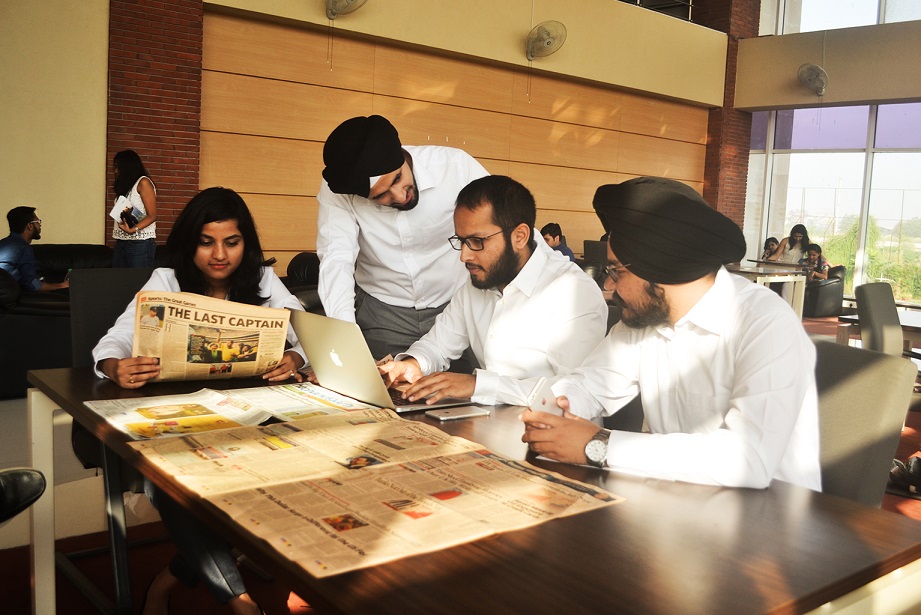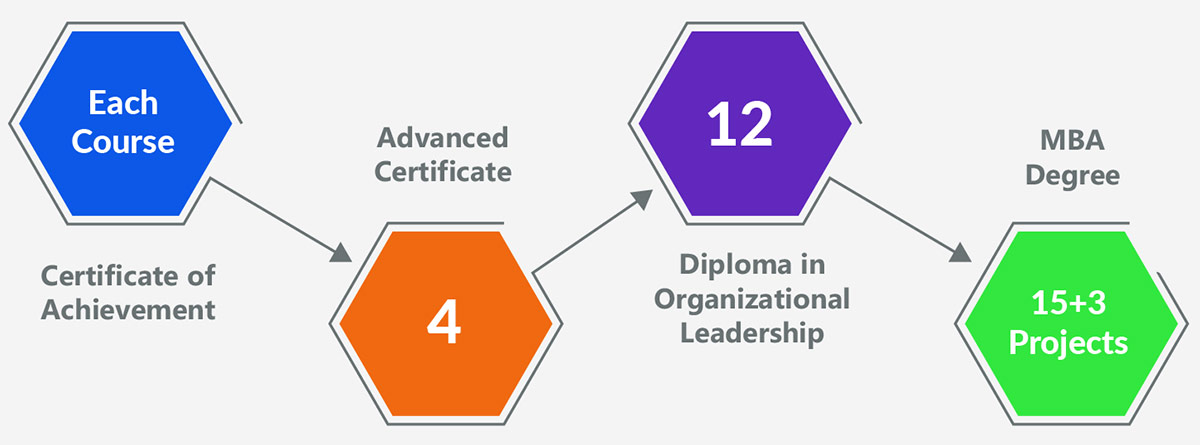Our Advanced Management Development Program for Working Professional AMDP is taught by a group of experienced Scholars, Teachers and Practitioners will help you unlock your potential to deal with challenges and opportunities offered by the modern business world leading to an MBA degree

Take a leap and embark on a journey that you will cherish!
Enrich your career by enhancing your knowledge and skill set for an ever-changing business world.
Flexibility of taking modules as per your availability.
Our programme is one of the best in the country basis offering expert faculties for interaction during the programme and diverse peer in the cohort with you.
18 month programme which will be conducted virtually or physically at our Derabassi campus (near Chandigarh).
Thapar AMDP Program is designed specifically to meet the needs of scholarly industry practitioners. It has been structured in a way that the participants can choose the pace of the learning in line with their professional aspirations. This program offers a flexibility of taking modules as per the participant availability in addition to the fixed path of learning.
Even after graduating from our institute, the participants will get access the Management Development Programs held by the institute or other distinctive academic intervention being held. Additional modules than the ones included can also be taken up with a nominal fee.
Faculty use various pedagogical tools like case discussion and analysis, flipped classrooms, video interventions, problem-solving, in-class tests, tutorials etc. for a more engaged teaching and learning process. The participants with greater experience or insights are encouraged to play an important role in teaching and learning process by taking over the class in any case discussion or flipped classroom setup. Students are divided into smaller groups for the projects. Extra sessions for doubt clearing or some in-depth sessions may be conducted.
Some of the innovative teaching practices introduced by faculty members are given below:
Flexibility of taking modules as per your availability.
The entire program will include 15 core modules + 3 capstone projects covered in 18 months.
A total of 21 certificates and finally a degree will be awarded.
Opportunity to interact with international faculty for various courses.
There will be flexibility of undertaking an in-depth independent study project in lieu of certain subjects making the study customized for each participant.
Seasoned and the faculty renowned in their o?ered will engage the participants.
The payment can be done in instalments.
Additional modules than the ones included can also be taken up with a reduced fee.
For any global intervention offered (as available from time to time basis), the fees will be communicated separately.
Participants will also have access to any Management Development Programs held by the institute or other distinctive academic intervention planned even after graduating.
Concession on additional modules,
Access to development programs
The certificates will be awarded as below

The Thapar AMDP program offers a total of 15 core modules. 12 core modules are shown. In addition of these, there will be 3 more core modules that will be offered as per the current trends in the market. All the modules have been carefully put together incoporating feedback provided by both practitioners and academia.
An in-depth understanding of various processes of organizing and managing for creating innovative high-performance organizations is essential to developing confident general managers. This module has been designed by incorporating advances in three major new scientific disciplines; evolutionary psychology, cognitive science and behavioural economics. Discussions in this module range from an evolutionary science-based understanding of fundamental human nature to self-knowing; group and social processes to organizational and societal culture to gain a critical understanding of designing and creating sustainable organizations.
Fundamental understanding of the application of economic theory to create sustainable value is imperative for general managers. This module is designed to help participants learn the concepts and analytical tools to make sense of the functioning of for-profit enterprises from the point of view of creating economic value. Special attention is also given to the economics of start-ups and the limitations of economic theorizing on economic sustainability and stakeholder well-being.
Quantification and visualizing the economic value of a business is central to the general management function. A practical overview of the accounting function of the business will be the major focus of this module. The overall emphasis will be on evidence-based managerial decision-making using accounting data.
Designing and optimizing all the operations of the value chain is not only important for saving cost but also necessary for creating new products and market opportunities. This module covers the basic concepts of Operations Management, the role played by the Operations function in a business and its relation to the other functional areas.
Modern HRM involves strategic direction, assessment of the personnel requirements and specifications followed by talent management, all of which have been designed to demonstrate the value of human capital. Nevertheless, many organizations today engage consultants for traditional HR functions such as recruitment, training and development, appraisals, or conflict management. Consulting skills are emerging as the essential skills for an HR Professional. Thus, this course also includes an overview of consulting as a career, especially for HR managers.
With the business environment becoming increasingly complex, global and competitive, developing a strategic perspective about how a firm should position itself in order to compete successfully is very crucial. This calls for an in-depth understanding and a clear vision from the perspective of business leaders of what their competitive advantage is and of how to maintain and enhance it further. This module aims to comprehend the importance of envisioning in strategy for guiding the business and understanding the frameworks and processes.
This is a highly interdisciplinary module where we bring together concepts and ideas from the science and practice of entrepreneurship, innovation and technology management. The focus is on creating new value in a sustainable way with a long-term focus. Attention will also be given to corporate entrepreneurship.
Marketing is an integral function to establish strategic direction of an organization. It essentially deals with all those activities that are undertaken by a business concern to stimulate its sales in domestic and foreign markets. This module includes understanding of marketing environment, assessment of requirements, tastes and preferences of customers, competitor analysis, technological analysis, etc., and accordingly design product features and take pricing, promotion and distribution decisions.
The main goal of financial accounting is to create financial statements which are useful to the external parties/various stakeholders in measuring the financial wellbeing of the businesses. Understanding these reported financial statements develops the students' ability to assess managerial performance and financial soundness of the businesses for financial decision-making at the local and global levels.
Enabling Technologies module follows a technology-based approach to operations management. Special attention will be given to understanding new technologies like artificial intelligence, internet of things and machine learning in supply chain optimization.
A clear understanding of both qualitative and quantitative techniques of data capture and analysis is important for general managers and business strategists. Practical insights in data collection, analysis, visualization, and interpretation are given in this module. Basics concepts in artificial intelligence, internet of things and expert systems will be introduced to help participants appreciate the value of new technology in evidence-based decision making in various facets of managing and leading.
Sustainability and Ethics is a highly interdisciplinary module which brings together environmental sciences, energy engineering, ethics and organizational behavior in a single framework to think about sustainable ways of strategizing and managing. The course introduces theoretical concepts and frameworks useful for analysing the external and internal environment of the firm, and guiding the formulation and execution of suitable strategies to achieve sustainable competitiveness. The main thrust of this course is general management and leadership to achieve organizational excellence.